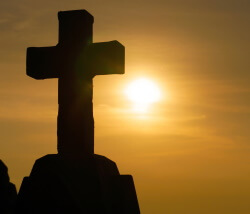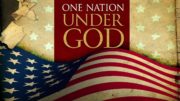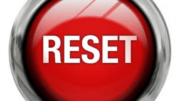We now have a foundation for understanding critical theory. An idea intended to shape and control society. The state religion model is about control, including education and media.[1] Both Plato and Aristotle believed in public education financed by taxation and under government control. Today’s education uses critical theory; it is a tool. With that, we’ll begin with our Founders’ perspective on education, and then move on to critical theory itself. This discussion lies at the heart of what we as a people call freedom. The choice is ours, but what kind of choice will it be?
Our Founders and Education
Carl Richard’s book, The Founders and the Classics examines early American education. An education deriving its methods and curricula from the English educational system, “which like other European systems, had originated in the Middle Ages. The medieval ‘trivium’ (rhetoric, logic, and grammar) and ‘quadrivium’ (arithmetic, music, geometry and astronomy) continued to dominate western curricula … schoolmasters thoroughly grounded their students in theology, philosophy, Latin, Greek, and the ancient historians Herodotus, Xenophon, Plutarch, Livy, Sallust, Quintus Curtius, and Cornelius Nepos. … The same ancient Romans—Cicero, Horace, Virgil, and Ovid—held sway throughout Europe.”[2] This education incorporated the Bible, teaching right behavior models and anti-modals. Our Founders believed studying history prevented tyranny. We learn from our past.
Students often kept commonplace books containing study thoughts and observations. Adams, Jefferson, and Madison kept their books and sometimes referred to passages in their adult correspondence. But even those not receiving formal education also came under this systems influence. One example is George Wythe. “[A] signer of the Declaration of Independence and a member of the Second Continental Congress, the Virginia Ratifying Convention, the Virginia House of Burgesses, and the Virginia High Court of Chancery, [Wythe] never attended college. Yet he learned the classical languages from his mother, an exceeding intelligent woman who had somehow become fluent in them. She instilled such a love and knowledge of the classics in Wythe that he was revered by his law students, including Thomas Jefferson, James Monroe, John Marshall, and Henry Clay.”[3]
This educational approach teaches its students how to think, improving their ability to handle any future problems they may face. As we’ll see, critical theory doesn’t do that. Instead, it trains one what to think. The difference couldn’t be greater.
What is Critical Theory?
Critical theory is a child of the state religion model. We see its ideas in the Greek philosophers writings, including Plato and Aristotle. Both believed government should control all important societal traits. “The citizen should be moulded to suit the form of government under which he lives. … Neither must we suppose that any of the citizens belongs to himself, for they all belong to the state.”[4] Today’s idea reiteration comes from Marx, Engels, Bentham and others, and is communist thought’s basis.
Its Tenets
State religion societies possessed class systems, and people’s purpose was maintaining them. Critical theory serves this goal. Today’s version proposes the world consists of two classes; victims and oppressors. Take the phrase ‘victim mentality’. It’s right in front of us. Do we see and understand it?
With critical theory, class identification is the social scientist’s responsibility; philosophers, sociologists, and psychologists. Research identifies a victim group, then society has a moral obligation to right the wrong. Governance power provides the policies, statutes, and enforcement. Religious power provides the needed moral underpinnings. This is the same relationship between those powers existing within the state religion model.[5] The media’s narrative supports both powers.
Critical theory glorifies victimhood. The more oppressed groups one belongs to, the greater a person’s authority to speak. Classes are based on anything, including; race, age, gender, sexual orientation, profession, social class, economic class, creed, and religion. The Biblical model teaches there is only one class—man. All have the same nature, rights, and obligations. Period. These ideas are incompatible.
Critical theory is not new. We’ve seen it in America for some time. Think about the ‘gay agenda’, ‘race wars’, transgender issue, whether one took the covid shot or not, even the Israeli-Palestinian campus unrest. All are critical theory applications. Christian nationalism is no different. It’s just another critical theory case.
Critical theory changes personal responsibility for choices into being a victim of circumstances. A pawn in need of assistance. This creates an endless cycle of oppressor, victim, oppressor, victim, etc.—while increasing governance power. All by dividing society; making it easier to control. It lasts only as long as we are willing to accept such views.
Freedom’s Shaping
Critical theory shapes freedom’s meaning and purpose. Let’s start with a definition, one our Founders would likely agree with. Freedom means, “’the absence of coercion—to the extent that this is feasible in organized society. It means that ability of human beings to act in voluntary fashion, rather than being pushed around and forced to do things.’ … The freedom to act on one’s own behalf cannot infringe upon another’s freedom.”[6] This is freedom within the Biblical governance model, where the people are sovereign through God’s granting man dominion. It is the knowing and doing of God’s will expressed by Moses and Jesus.
Freedom within the pagan state religion model has an entirely different basis. In these societies, government is sovereign rather than the people. You still have a choice, but the choice has already been defined for you. One has instead the freedom of obedience—does one comply with the presented choice or not. This choice is the illusion of freedom. It is present in all the state religion governance forms; monarchy, oligarchy, and democracy. Which freedom do you prefer?
Organic Law
Our Founders recognized the need for people developing to join the republic. The Northwest Ordinance, one of America’s founding documents, observes;
“Sec. 13. And, for extending the fundamental principles of civil and religious liberty, which form the basis whereon these republics, their laws and constitutions are erected; to fix and establish those principles as the basis of all laws, constitutions, and governments, which forever hereafter shall be formed in the said territory: to provide also for the establishment of states, and permanent government therein, and for their admission to a share in the federal councils on an equal footing with the original States, at as early periods as may be consistent with the general interest:
‘Sec. 14. It is hereby ordained …
‘Art. 3. Religion, morality, and knowledge, being necessary to good government and the happiness of mankind, schools and the means of education shall forever be encouraged.”[7]
Jefferson and Madison both tried to find solutions for offering education with government funding. They failed to find such a solution. I believe that solution does not exist.
An Alternative
Children are our most precious resource; and every community’s future. We are sovereign; therefore education should be left in the people’s hands. I believe a solution exists. While I’ve written about this before, it deserves some attention within this conversation.
Taxation is the collection and spending of the people’s money. Government is a resource consumer, not a producer. The people should keep their money supporting education. Instead a can create a private trust to receive education related money; with the community as the grantor, an appointed board of trustees, and the students and community as beneficiaries. The community could be a county, city, or other unit.
The entire community contributes funds, as they do now using property tax assessments. Total school funding needs determines total collected from the community. Each student receives the same funding, and selects a school to attend. The student and parents pay the school the trust funds received. The parents and student are also responsible for any tuition difference. The indenture agreement lays out the party’s duties and benefits. The trust could be a charitable trust.
Expressed Another Way
- Schools each budget their needs for a 3-5 year period. They also each create their own curricula. A school can specialize if that is in their, and their students, best interests.
- The trust sets rates for collection from the community.
- The trust grants each student the same funding based on average projected school needs.
- Each student and their parents decide on a school to attend.
- Parents and student make up any tuition difference, or schools can establish scholarships.
- Trustees are accountable to students, parents, and the community.
- Schools become accountable to the students they serve. Those doing well increase enrollment; schools doing poorly do not.
The above design encourages marketplace results. Schools delivering a superior product are rewarded; those delivering an inferior one change or go out of business. Focus shifts to the student and their education. The entire community benefits from students better able to productively live and work within the community. The community has an incentive for creating a place the student wishes to continue living in after completing school.
Final Thought
We must realize what critical theory is—a tool of democracy. Democracy is one governance form within the state religion model. This tool has no place in a republic. Critical theory teaches one what to think and believe, rather than coming to a realization on your own with the problems we all face in life. Man defines good rather than God, but man needs God to be complete.
I do not fault the presenter whose ideas generated this discussion. They were just speaking what they’d been taught. It’s what they now believe. A society surprised at their children acting upon what they’re taught is in trouble. They are sovereigns no longer understanding their true nature. Time to reclaim that nature, before it’s too late.
If we want something better, then we need to aim at a better target. We may not reach it, but we will almost certainly be closer than if we aim at the wrong one. The next, and final series article, looks at Christian nationalism within critical theory’s context. More is available on critical theory with a series beginning with Critical Theory Idolatry.
Footnotes:
[1] For more, see Wolf, Dan, pp. 11-9, The Light & The Rod, Why Biblical Governance Works, Living Rightly Publications, 2020.
[2] Richard, Carl, p. 20, The Founders and the Classics, Harvard University Press, 1994.
[3] Ibid, p. 36.
[4] Barnes, Jonathan, Ed., p. 2044, The Complete Works of Aristotle: The Revised Oxford Translation, Vol. II, Princeton University Press, 1995. Politics, Book III, Chapter XVII.
[5] See this series first article, The Two Kingdoms Revisited.
[6] Wolf, Dan, pp. 2-3, The Light & The Rod, Why Biblical Governance Works, Living Rightly Publications, 2020.
[7] National Archives, Northwest Ordinance, https://www.archives.gov/milestone-documents/northwest-ordinance . Accessed Oct., 2024.




